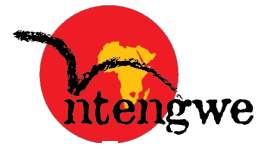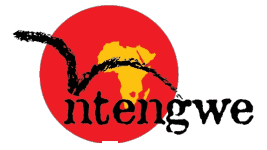School Infrastructure Improvements Bring Joy To Communities
Schools in marginalized areas in Binga district face the biggest investment needs in Zimbabwe, meaning that students attending these schools are doubly disadvantaged. These students come mainly from low income and rural families attending poorly equipped schools. Overcrowded classrooms resulted in drop-out rates, suggesting that poor learning environments and inadequate infrastructure negatively affected students.
A total of 12,274 children, including children with disabilities benefited from learning materials in special classes, access to education and in-school retention through the block grant model.
We strengthened community-based systems through the improvements of school infrastructure, refurbishing schools, developed water sources and gardens at schools. We developed Resource Units for hearing and the intellectually challenged children and supported interventions for highly marginalized girls who are out of school to find ways of getting girls back into schools and ensuring they receive quality education to transform their future.
We worked with the Ministry of Primary and Secondary Education and teachers under the education block grant to contribute towards school infrastructure improvements, which also improved students’ learning outcomes. We worked with young people in vocational and technical skills building. These groups manufactured and supplied quality furniture to local primary school, whilst other welding groups were engaged in repair of furniture and infrastructure development in schools.
This has transformed their lives significantly. Many of the young people 23 upgraded to Westgate and Mupfure Industrial Colleges to formalise their apprenticeship and to prepare them for Trade Testing for formal certificates in class three and four.
The project has shaped local leaders, children and young people. It has enhanced their life-skills and confidence to engage in local development discourse.
Position papers done by children, highlighting pertinent issues on the lack of sanitary ware for their disadvantaged counterparts and the effects to their education. Other papers raised concern on the lack of specialist teachers with Special Needs qualifications for providing quality and inclusive education in schools. The papers made recommendations to the respective duty bearers.
The Binga Rural District Council, as a result of this have updated fife of their local by-laws affecting operation of Small to Medium Enterprises in the District. Enterprise associations also had increased space and voice in community Village Development Committee and Ward Development Committee meetings which gave them an opportunity to market their services and gain community confidence.
My Vision is for Girls’ Education: I had a Chance to fulfil my Dream
 By Literacy Muleya, November 2017, Secondary School Graduate
By Literacy Muleya, November 2017, Secondary School Graduate
When I think of girls’ education in Binga, I dream of a Binga where more girls have the opportunity to attend school and are treated equally. I long for a Binga where girls have access to a free education.
In my home ward in Saba, there are many barriers to education. Girls are typically seen as domestic workers, while boys are groomed into custodians of the entire community. Too often, poverty forces families to choose which children to send to school. Unfortunately, most use the little resources they have to educate only their boys.
Many girls in my community are getting married below the age of 18 years. I could have been among those girls. But I had a vison to complete O-Level and I had a chance to fulfil my dream.
I come from a family of 8 children (5 girls and 3 boys). My father was a cotton farmer and able to support our family and my education, until my father got ill when I was in Form 3 and most of our money had to be used for his medication. Then my mother got ill and had to travel to Bulawayo for surgery, which was an additional expense we did not have.
Because of our families’ lack of resources, my father was unable to pay for my school fees and as a result of non-payment I was chased away from school. I was devastated when I realized that my dream to become a teacher was slipping away from me. One day, I was called by my headmaster who informed me that a program called: “Integrated Learning, Skills and Entrepreneurship Advancement Initiative (ILESEA)” was rolled out and I was accepted into the program.
My prayers were answered with this unexpected opportunity to complete O-Level. I passed 5 subjects with an A in Math’s and English.

